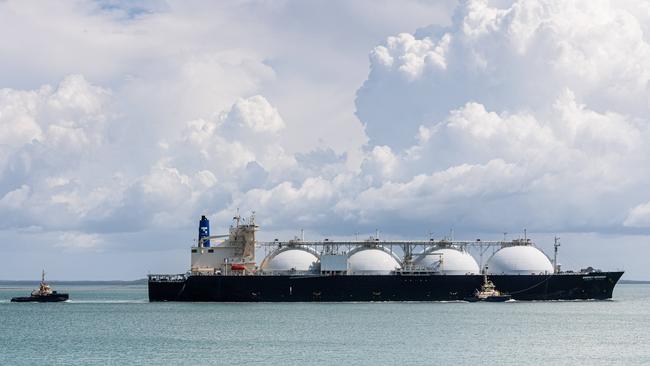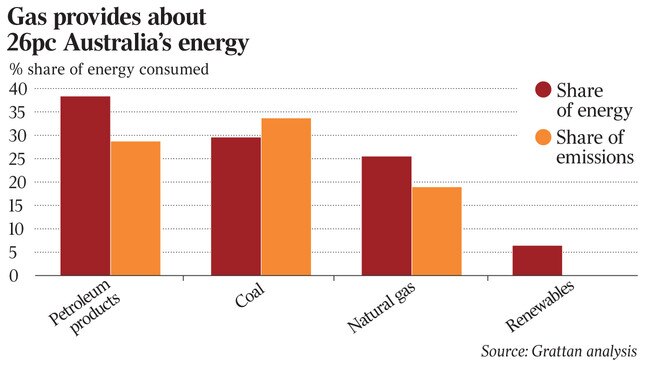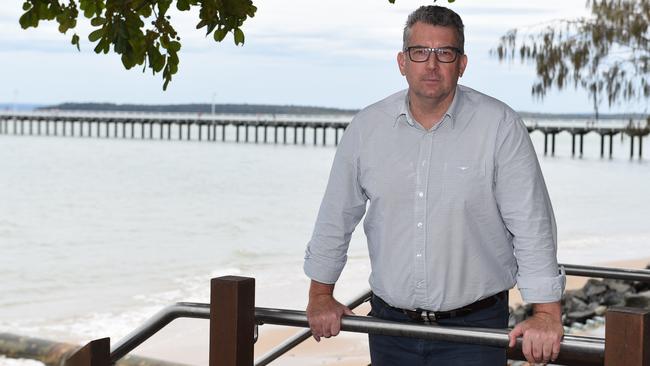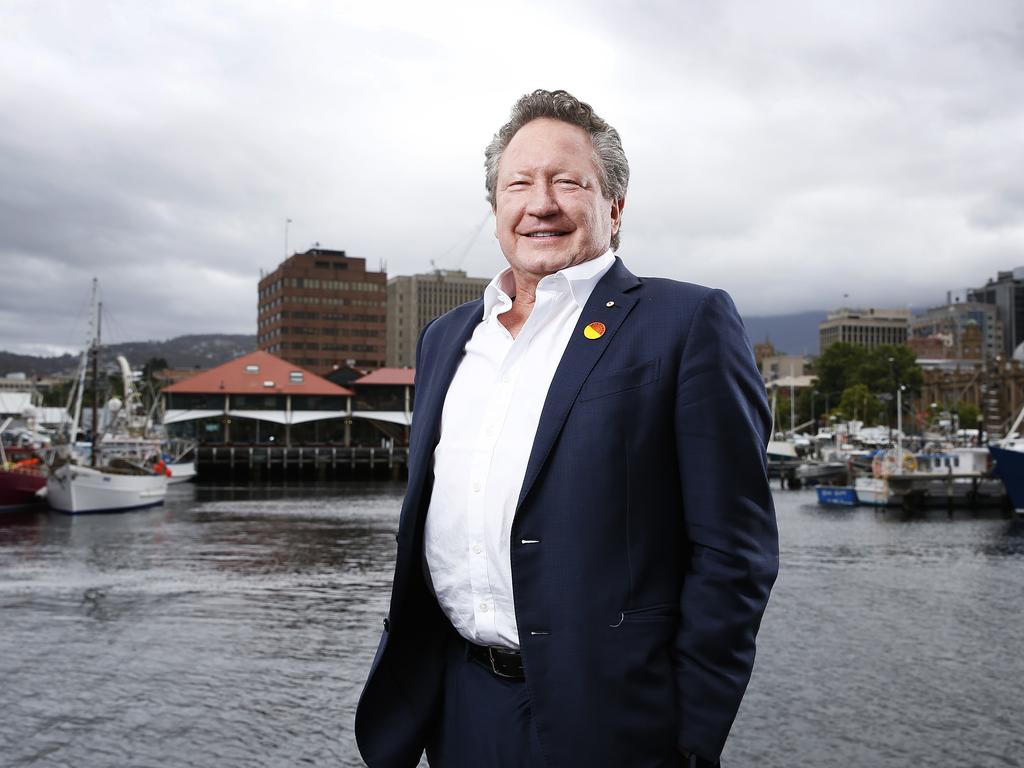Morrison government gas recovery plan ‘won’t create jobs’
The Morrison government’s plan for a gas-led economic recovery has been questioned by experts who claim the move will not lower prices or create manufacturing jobs.

The Morrison government’s plan for a gas-led economic recovery has been questioned by experts who claim the move will not lower prices or create manufacturing jobs.
A JobMaker gas-fired recovery plan relies on unlocking more east coast supply to drive down prices and help manufacturers and households. The government has said it is prepared to underwrite new generation and pipelines and implement a reservation scheme to spur an economic rebound from recession.
Industry experts say the strategy falls short. Even if the government intervened in the market with big subsidies, Australia’s gas-reliant manufacturers — for whom the fuel makes up more than 10 per cent of their costs — employ just 10,000 people and account for 0.1 per cent of the national economy, the Grattan Institute says in a report to be released on Monday.
Manufacturing plants on the east coast employing 4500 workers would benefit the most from any potential lowering of prices, compared with the government’s assumption — using a broader definition — that gas-reliant manufacturers employ 225,000 workers.

“Policy efforts to ensure a well-functioning gas market are welcome. But these efforts do not equal a gas-fired recovery, which would require heavy-handed and expensive measures that effectively subsidise gas prices. This would be a poor use of government resources and prove a losing bet in eastern Australia,” Grattan Institute energy analyst Tony Wood said.
An ongoing spat between big users and producers over high gas prices also looks set to continue with the think-tank dashing the ambitions of government adviser Andrew Liveris, who has targeted $4 a gigajoule gas for the domestic market, about half the prices currently paid on a contractual basis.
The lowest-cost gas on the east coast has already been developed, with the cost of production steadily rising. Mining explosives maker Orica — one of the nation’s biggest gas users — is expected to highlight gas prices when it delivers its full-year earnings results on Friday.
“Policymakers and gas users should accept that eastern Australian gas prices will never return to the ‘good old days’ of $4 per gigajoule. The cost of supply has increased as low-cost sources have become depleted and with additional demand from LNG exports. Even $6 per gigajoule does not appear realistic, given that most new gas supplies cost more than this,” Mr Wood said. “Policy tweaks and smart, flexible private investments can help to improve the functioning of the market and keep wholesale prices at fair and cost-reflective levels. But they cannot achieve miracles.”
Resources Minister Keith Pitt told The Australian he was very confident the government’s push to free up more gas into the domestic market would help grow manufacturing jobs, however.
“I’m very confident the gas-led recovery will make a big difference. More supply into the market clearly affects the domestic market price, and we’ll get more manufacturing, not less. And we’ve got significant commitments on the table in terms of the economic recovery plan in the federal budget, including new strategic basins, and new link-in infrastructure, and all of those are positive for the Australian public and those looking for a job,” he said.

The industry is on edge after the federal government said it was preparing to “strengthen price commitments” as it looks to negotiate a new heads of agreement with Queensland gas exporters to ensure sufficient affordable supplies are available. Grattan said such a price signal could work for all sides but cautioned against expecting much benefit from a mooted reservation scheme.
“The government has proposed extending this agreement and strengthening price commitments. This appears to be a reasonable balance, provided any supply and price triggers are consistent with good market outcomes — such as preventing large-scale LNG spot cargo exports at prices lower than those offered to domestic customers. If this policy is maintained, any benefits from a prospective domestic gas reservation policy appear limited.”
The government’s nomination of gas as the key transition fuel for Australia’s economic recovery also appears to be at odds with the emissions goals needed to meet international climate change commitments. Instead, renewables with gas as a backstop to meet demand peaks and periods of low wind and sun was a preferable policy path.
“The dream of gas as the critical transition fuel is dead, at least in eastern Australia. Gas is expensive and will stay that way,” Mr Wood said.
The Morrison government says Australia is on track is to reduce emissions across the economy by 26 to 28 per cent on 2005 levels by 2030.
The Australia Institute also says Canberra’s “gas-fired recovery” will not assist Australia’s manufacturing industry, with any rise in gas production likely to benefit gas exporters rather than manufacturers.
“There is no relationship between increasing gas supply and manufacturing jobs,” the Australia Institute will say in a report to be released on Monday. Australian manufacturing jobs declined throughout the decades of cheap abundant gas from the mid-1980s to 2013. Manufacturing jobs have declined as gas production has tripled over the last six years, including in Western Australia where a gas reservation policy keeps gas prices low.”
A spokesman for Energy Minister Angus Taylor disputed the report. “The government believes the Grattan Institute’s analysis of gas’ impact on the manufacturing sector is narrow, oversimplified and does not reflect industry’s own views.” he said.




To join the conversation, please log in. Don't have an account? Register
Join the conversation, you are commenting as Logout